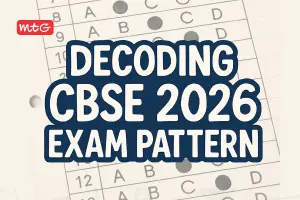The Reproductive Health Class 12 Biology MCQ with Answers has been organized according to the latest exam pattern in the CBSE Class 12 Biology syllabus. Human reproduction covers topics like reproductive health, birth control, sexually transmitted infections, infertility, These questions are designed to help students understand the concept thoroughly and will help prepare students for their upcoming CBSE class 12 biology exam. They are not only helpful for revision but also for grasping the concepts effectively. The MCQ questions for Chapter 3 Reproductive Health cover in-text book questions and important topics to help students assess their preparation level for CBSE board exams.
Recent – Human Reproduction Class 12 Biology MCQ With Solutions
CBSE Class 12 Chapter 3 Reproductive Health MCQs
Check below the CBSE Class 12 Biology MCQ with answers and Clear your idea of Chapter 3 Reproductive Health.
Q.1. Which is the hormonal method of birth control?
(a) Pill (b) IUD
(c) Vasectomy (d) Femidom
Answer
Check Out – 11 Most Important Graphics of NCERT Class 12th Biology That You Cannot Miss
Q.2. Which of the following is wrongly matched?
(a) IUI-semen collected from husband or donor is artificially introduced either into the vagina or into the uterus.
(b) GIFT-transfer of embryos with more than 8 blastomeres into the fallopian tube.
(c) ICSI-sperm directly injected into the ovum.
(d) ZIFT-transfer of embryos with upto 8 blastomeres into the fallopian tube.
Answer
Practice More – CBSE Sample Paper Class 12 for 2023-24 Boards | FREE PDF from MTG
Q.3. Which of the following contraceptive methods involve a role of hormone?
(a) Pills, Emergency contraceptives, Barrier methods
(b) Lactational amenorrhea, Pills, Emergency contraceptives
(c) Barrier method, Lactational amenorrhea, Pills
(d) CuT, Pills, Emergency contraceptiveWhich part of the sperm plays an important role in penetrating the egg membrane?
Answer
(b): Lactational amenorrhea method is based on the fact that ovulation and therefore the menstrual cycle do not occur during the period of intense lactation following parturition. This is because breast feeding disrupts the pattern of pulsatile release of GnRH from hypothalamus and hence reduction in gonadotropin releasing hormones. Pills are hormonal preparations (either progestogen or progestogen-estrogen combinations) in the form of tablets which are administrated orally by females. They inhibit ovulation, implantation as well as alter the quality of cervical mucus. Emergency contraceptives are pills that contain levonorgestrel, a type of progestin that helps to prevent pregnancy when taken in few days after sex.
Q.4. In which of the following techniques, the embryos are transferred to assist those females who cannot conceive?
(a) ZIFT and IUT (b) GIFT and ZIFT
(c) ICSI and ZIFT (d) GIFT and ICSI
Answer
Q.5. Which of the following statements is wrong?
(a) Test tube baby is in-vitro fertilisation.
(b) Test tube baby grows within mother’s womb.
(c) Test tube baby grows within surrogate mother’s womb.
(d) Test tube baby grows following uterine fertilisation.
Answer
Q.6. Select the hormone-releasing Intra-Uterine Devices.
(a) Lippes loop, Multiload 375
(b) Vaults, LNG-20
(c) Multiload 375, Progestasert
(d) Progestasert, LNG-20
Answer
Q.7. Which of the following is a correct statement?
(a) IUDs once inserted need not be replaced.
(b) IUDs are generally inserted by the user herself.
(c) IUDs increase phagocytosis of sperms in the uterus.
(d) IUDs suppress gametogenesis.
Answer
Q.8. Which one of the following is not a method of contraception?
(a) Condom
(b) Pills having oxytocin and vasopressin
(c) Lippes loop
(d) Tubectomy
Answer
Q.9. Which of the following contraceptive devices makes uterus unsuitable for implantation?
(a) Progestasert (b) CuT
(c) Lippes loop (d) Multiload
Answer
Q.10. The technique called Gamete Intra Fallopian Transfer (GIFT) is recommended for those females
(a) who cannot produce an ovum
(b) who cannot retain the fetus inside uterus
(c) whose cervical canal is too narrow to allow passage for the sperms
(d) who cannot provide suitable environment for fertilisation.
Answer
We hope the MCQs for the CBSE Class 12 Biology Chapter 3 on Reproductive Health are helpful for your board exam preparation.
Keep learning and stay updated with us for more CBSE exam updates.






























